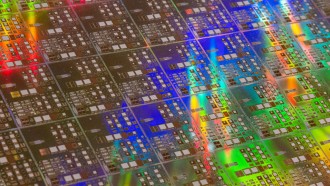
(Photo: Mike Stone/Getty Images)
The Dallas Police Department (DPD) will use artificial intelligence-powered facial recognition technology to increase the speed of criminal suspect identification.
The police will be using an AI program called "Clearview AI" that mines billions of images, including those from social media platforms like Facebook and Instagram, to pinpoint the individuals the police are searching for with the use of AI.
Eddie Garcia, the police chief, told the committee that the program would be implemented in six months and that it had already been applied to some instances.
Specifically when the AI program helped identify a possible child pornographer after he was photographed in the background of a trade event.
Police frequently rely on tipsters to identify the suspect's image from the news or matching physical descriptors previously stored in the police database when a crime is caught on camera.
Garcia stated that Dallas would have a "robust" policy and that his department waited to see what problems other cities were having with the technology.
The police will not be permitted to go fishing. As per department procedure, a supervisor in the city's Real Time Crime Center will peer-review detectives' searches for specific suspects charged with specific offenses.
Read Also: Police Says Latest Technology Key to Recent Successful UK Murder Investigation
Clearview AI
The AI software is reportedly explained by criminologist Alex Del Carmen of Tarleton State University, who noted that specific identifying characteristics such as an individual's ear shape, nose shape, distance between nose and ear, eyes, and pupils of eyes are used to determine the suspect. Utilizing each of these elements in a manner akin to fingerprints.
According to Major Stephen Williams, it will assist law enforcement in apprehending suspects at huge gatherings such as stadiums and concerts.
However, according to DPD, the technology will not be utilized to identify individuals in real-time video feeds or streamed live events.
Major Williams asserts that since there must be a criminal infraction before people "start doing things," the program will not be utilized as a "license plate reader" for humans.
Microsoft on Police Use of AI
Even though this latest development demonstrates how police use of AI-powered face recognition technology is growing, Microsoft recently barred US Police from using Azure OpenAI's AI-powered facial recognition technology.
The recently modified terms of service for the Azure OpenAI Service specifically ban US law enforcement agencies from using Azure OpenAI Service integrations in facial recognition technologies.
This covers interfaces with the image-analyzing algorithms that OpenAI currently has and may develop in the future.
Real-time face recognition technology to identify persons in unpredictable, strange situations is expressly forbidden by a new bullet point.
Since the only authorities impacted by the complete ban on utilizing Azure OpenAI Services are US police, Microsoft has some leeway under the new rules. Moreover, facial recognition with stationary cameras in regulated environments, such as a back office, is not included.
Related Article: Baltimore Police Arrest Man Who Used AI to Impersonate High School Principal's Voice-Spitting Racist Remarks

(Photo: Tech Times)





